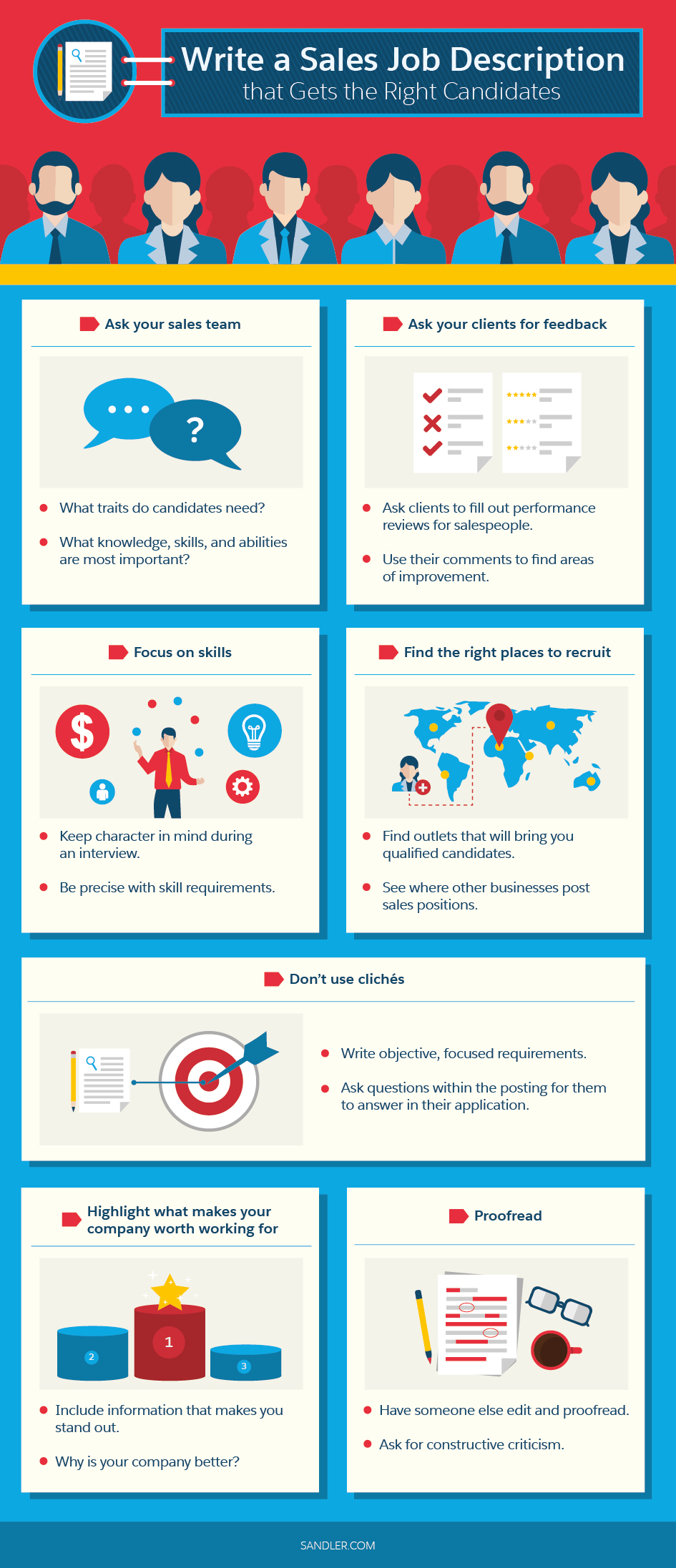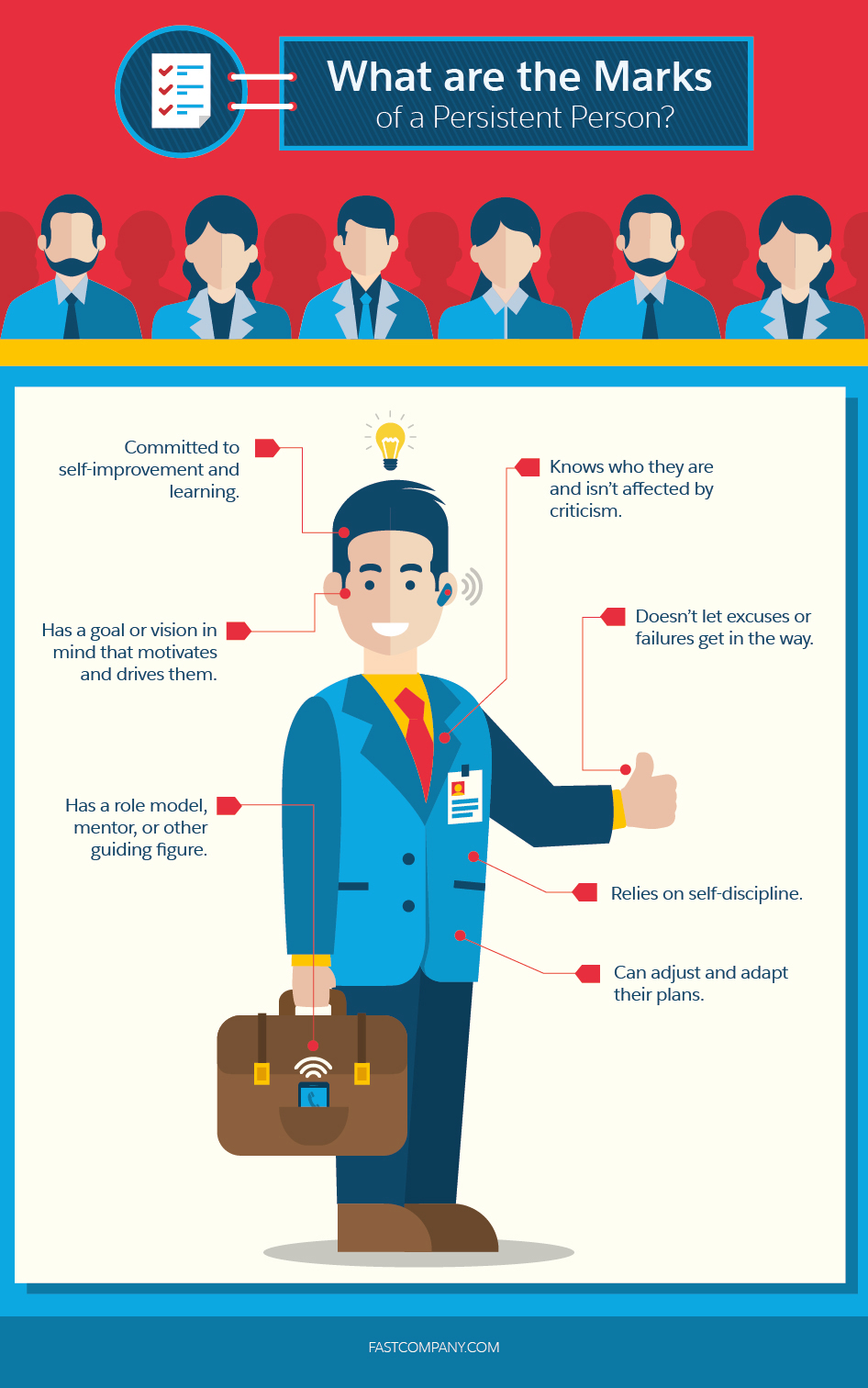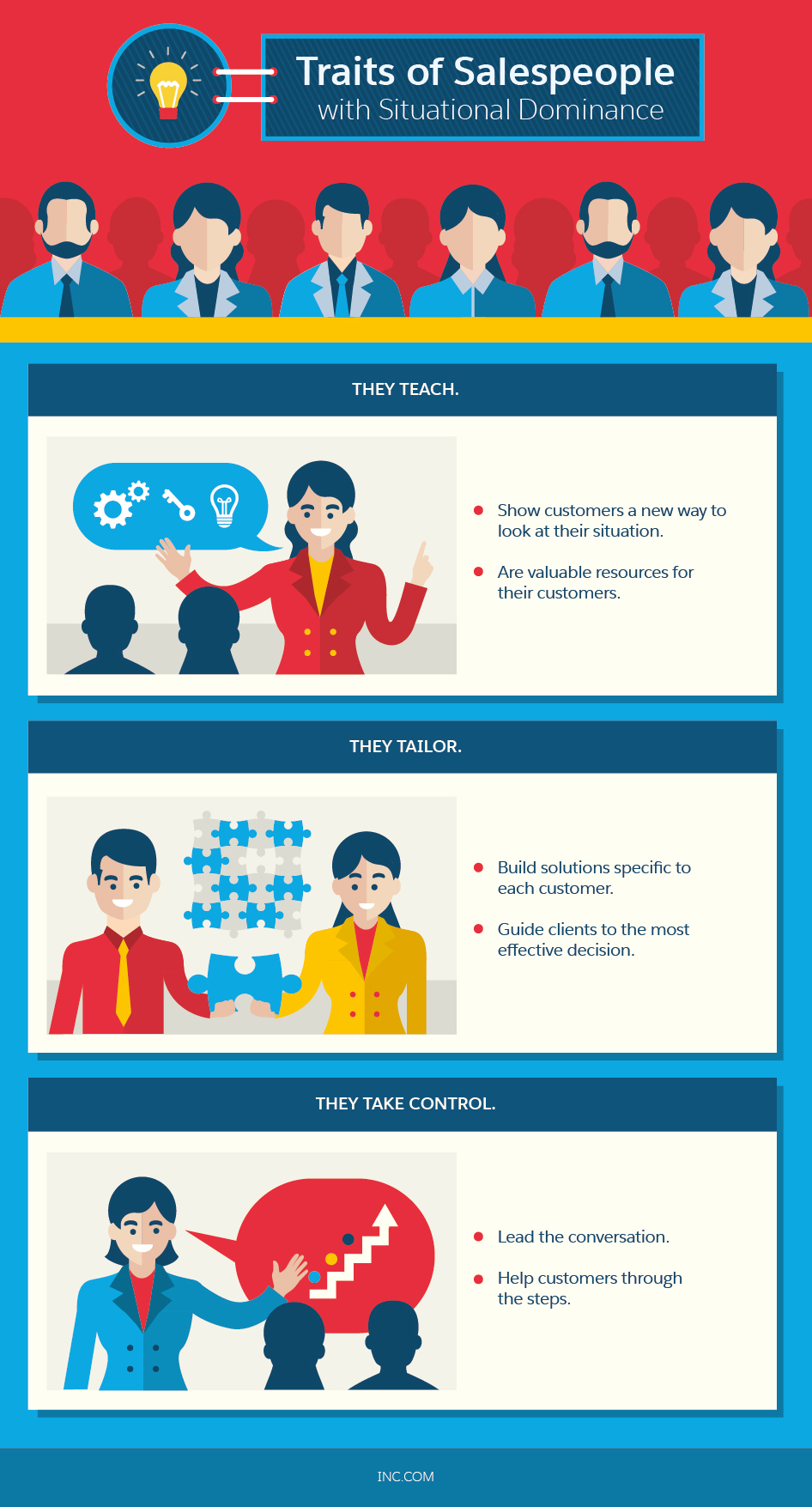
You need to find your next sales superstar, preferably yesterday. As you consider the pile of resumes on your desk, you may be tempted to take a shortcut by filtering out anyone without sales experience. But hold on! You could be moments away from tossing your future highest earner in the trash.
Some of the best salespeople are forged in non-traditional careers. The great ones aren’t a simple collection of skills, like a firm handshake and a confident smile; rather, they exude key personality traits that put them heads above the rest. As Landy Chase, author of the book Competitive Selling, writes, “The self-discipline and desire to be the best isn’t something that you can teach, cajole, or bribe . . . Therefore, drop ‘experience’ from your list of sales recruiting requirements.”
What personality traits should you look for, and how do you determine if the person sitting across the interview table has them? Some of the brightest minds in the sales industry have pondered these questions. With research and observation, they’ve come up with seven standard traits that can help identify sales powerhouses.
Get ready to look at that stack of resumes in a completely different light. The English teacher on the top of your pile might have everything it takes (with a little training) to shatter all your current sales records.
Write a Sales Job Description that Gets the Right Candidates
- Ask your sales team
- What traits do candidates need?
- What knowledge, skills, and abilities are most important?
- Ask your clients for feedback
- Ask clients to fill out performance reviews for salespeople
- Use their comments to find areas of improvement
- Focus on skills
- Keep character in mind during an interview
- Be precise with skill requirements
- Find the right places to recruit
- Find outlets that will bring you qualified candidates
- See where other businesses post sales positions
- Don’t use clichés
- Write objective, focused requirements
- Ask questions within the posting for them to answer in their application
- Highlight what makes your company worth working for
- Include information that makes you stand out
- Why is your company better?
- Proofread
- Have someone else edit and proofread
- Ask for constructive criticism

Sales Superstar Trait One: Conscientiousness
Conscientiousness. A little surprising, right? You’d think the first trait would be extroversion, or maybe the gift of the gab. However, a landmark study in the journal American Psychological Association found that the men and women who scored high in conscientiousness achieved more sales and higher ratings from their supervisors than their less conscientious peers. Notably, the study found no correlation between extroversion and sales volume.
“When you find a candidate that fits this description, you can count on them to not only set goals, but also to set a high bar for themselves and make a great effort to reach that bar,” notes Zorian Rotenberg, founder of Atiim, a company that specializes in corporate goal management. These are your dependable soldiers who will make the cold calls every day, prepare for presentations, and follow up afterwards.
So all you have to do is ask all your job candidates if they are reliable, goal-oriented achievers—easy, right? Not exactly. No job candidate in their right mind would fess up to letting goals slip by month after month. Test for conscientiousness by asking a job candidate to describe a time they set a goal and how they achieved it. Listen for how they articulate the goal and how dogged they were about getting the result they wanted.
Sales Superstar Trait Two: Competitiveness
Sales is all about pushing step-by-step to makes a sales goal, and then doing it all again the next month. It takes someone with extraordinary passion and hunger to stay on the field and keep playing. Steve W. Martin, who teaches sales strategy at the University of Southern California Marshall School of Business, interviewed thousands of top B2B sales reps and gave them personality tests. In an article for the Harvard Business Review, he explains that 84 per cent of top sales performers displayed a high achievement orientation. “They are fixated on achieving goals,” Martin writes, “and continuously measure their performance in comparison to their goals.”
How will you determine which applicants will give it 110 per cent, and who will limp off the field to ice their bruised egos? Martin found that 85 per cent of top sales achievers played a sport in high school. Check those resumes again. That waiter who served as caption of his high school hockey team may one day be the caption of your sales team.
Sales Superstar Trait Three: Persistence
Holding the hand of Competitiveness is its equally attractive cousin, Persistence. Anyone who has slogged through a hundred cold calls in a day without making a single new appointment knows that the life of a sales rep can be disheartening. Even the best salespeople face rejection on a daily basis, as well as the weight of their monthly sales goals. Shannon Fandler, the owner of Insight PRM, a company that specializes in B2B lead generation, explains that, “The most successful B2B sales reps let rejection roll off their backs.”
Look for job candidates with past careers that required a high level of persistence. Educators who worked in low-income schools. A business grad who spent time in the trenches of a startup. A stay-at-home parent is an important non-sales career to consider: Keeping a toddler clean, healthy, and entertained every day of the year is the epitome of persistence.
What are the Marks of a Persistent Person?
- Has a goal or vision in mind that motivates and drives them
- Doesn’t let excuses or failures get in the way
- Knows who they are and isn’t affected by criticism
- Relies on self-discipline
- Can adjust and adapt their plans
- Committed to self-improvement and learning
- Has a role model, mentor, or other guiding figure

Sales Superstar Trait Four: Curiosity
After he administered personality tests to 1,000 top performing sales people, Steve W. Martin found that 82 per cent of them scored through the roof in tests of curiosity, a trait he described as “a person’s hunger for knowledge and information.” Additionally, Tom Searcy, founder of Hunt Big Sales, performed an audit on the sales team of a midsized company and found that “higher-performing sales representatives ask more questions—often more than twice as many—and their questions are more focused on implications than on data.”
A deep well of curiosity drives a great salesperson to drink up as much information as possible about your product, allowing them to confidently present the product and answer questions. Curiosity also turns salespeople into excellent listeners who have a better chance of discovering a prospect’s true pain points and motivation for buying.
Curiosity is easy to test. At the end of an interview, ask the job candidate if they have any questions for you. Someone with a high level of curiosity is bound to have a whole list at the ready.
Sales Superstar Trait Five: Confidence
Confidence is a potent shield that protects a salesperson’s ego and self-esteem in the face of consistent rejection. The most confident salespeople know that bad sales days (or even bad sales months) will come and go. A few setbacks won’t diminish them. Confident people eat setbacks for breakfast and go on to nail down that seemingly impossible prospect by lunch.
In his testing, Martin found that less than five per cent of top sales performers exhibited high levels of self-consciousness. “Top sales people are comfortable fighting for the cause and are not afraid of rankling customers in the process,” he wrote in the Harvard Business Review. “They are action-oriented and unafraid.”
Arrogance can be easily mistaken for confidence in a job interview. During the interview, watch the individual’s posture and level eye contact. Listen to how they position themselves when answering your questions. Confident individuals will feel more comfortable praising their team and giving credit to others for past accomplishments, as well as honestly describing mistakes and weaknesses. And it’s rare that you’ll hear a confident person breezily answer, “My biggest weakness is that I work too hard.”
Sales Superstar Trait Six: Situational Dominance
In The Challenger Sale: Taking Control of the Customer Conversation, authors Matthew Dixon and Brent Adamson graded over 6,000 sales reps on 44 attributes. They found that highest performing salespeople overwhelmingly fit into what they defined as the “Challenger” profile. One of the primary attributes of this profile, as described in an article on Inc.com, is the ability to “take control of the conversation, thus leading the customer through the application of the insight to the customer’s problem.”
Steve W. Martin calls this same trait “situational dominance,” which he found in abundance among the top salespeople he tested. Situational dominance is not about grinding a customer down with a hard sell; that’s what people with low levels of situational dominance do. “A relaxed-dominant salesperson speaks freely and guides the conversation as he confidently shares his knowledge and opinions with the customer,” Martin writes.
Many jobs help build situational dominance skills. Any type of guidance counselor or therapist likely has a lot of experience keeping discussions on track, as do individuals with customer service and problem management backgrounds.
Traits of Salespeople with Situational Dominance
- They teach.
- Show customers a new way to look at their situation
- Are valuable resources for their customers
- They tailor.
- Build solutions specific to each customer
- Guide clients to the most effective decision
- They take control.
- Lead the conversation
- Help customers through the steps

Sales Superstar Trait Seven: Quick Thinking
While a good salesperson will approach any situation—from a cold call to a closing presentation—with a clear plan and a loose script, we all know the most reliable thing about sales is that you’re sure to run into surprises along the way. What happens when a frantic customer calls to say their product didn’t arrive on time? Or what about the sure-thing prospect who suddenly mentions she got a sweet offer from your biggest competitor?
The sales superstars have to “be able to deviate from the script when necessary and make hundreds of small decisions each day about how to engage the prospect and respond to various challenges/needs,” points out Shannon Fandler of Insight PRM. “A salesperson who only feels comfortable sticking to a certain pitch may fall short in situations that require adaptability and a quick response.”
To identify job candidates who can think quicker than a jack rabbit with a jet pack, look for people who have previously worked in roles with high levels of autonomy. Anyone with startup, small business, or managerial experience surely had to constantly adapt to different situations.
Who is Your Next Sales Superstar?
Is it the former teacher, the nurse, the tech engineer, or the recent graduate who led her baseball team to the regional championship? Make sure your hiring committee doesn’t overlook job candidates just because they don’t have years of sales experience. A great performer can quickly memorize your sales slides and learn the art of nurturing a lead. Look for the traits that truly matter: conscientiousness, competitiveness, persistence, curiosity, confidence, situational dominance, and quick thinking.
Star salespeople will shine when they have managers who take the time to train, mentor, and help them build their lead network. When you see the right traits in an individual, it only takes a little boosting on your part to launch that sales superstar into the sky. Now: It’s time to start scheduling some interviews!




